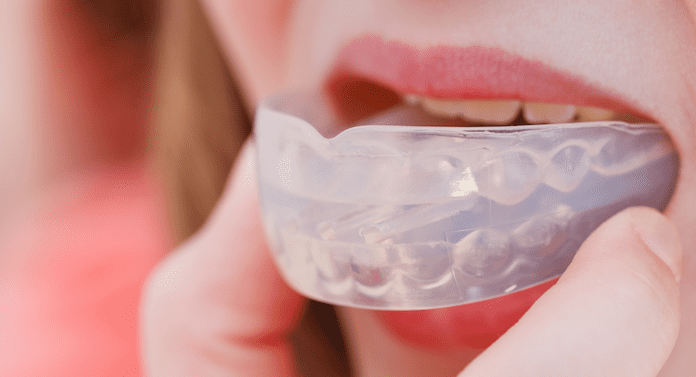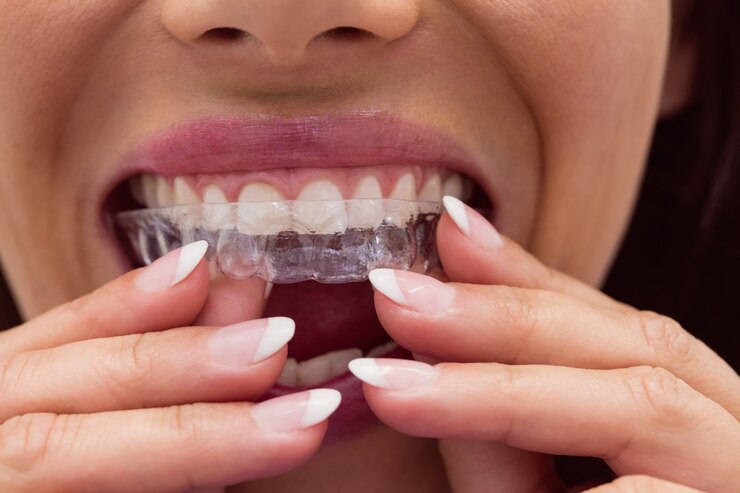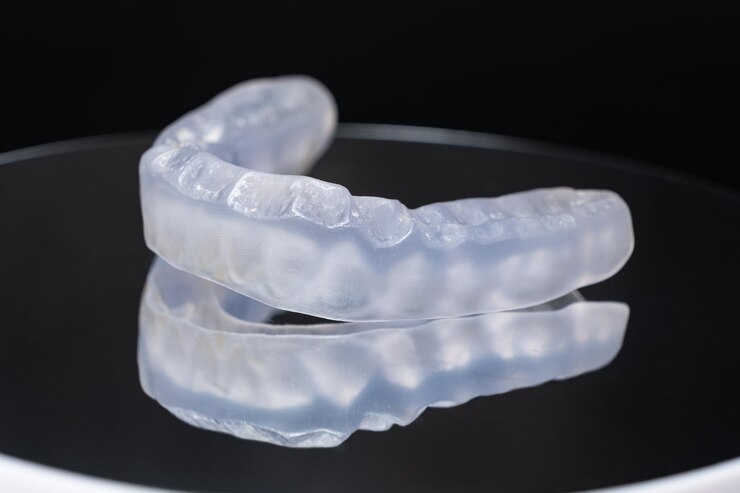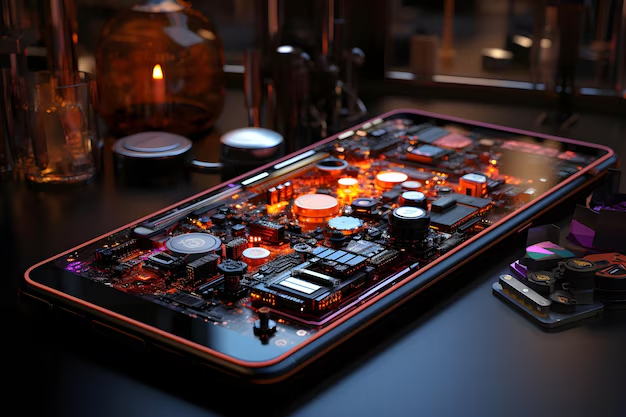Wearing a night guard can be crucial for those suffering from teeth grinding or clenching during sleep. However, maintaining your night guard’s cleanliness is just as important as wearing it. Knowing how to clean your night guard properly can help prolong its lifespan, prevent bacteria buildup, and ensure it remains effective in protecting your teeth. This article covers everything you need to know about cleaning your night guard, from daily routines to deep cleaning tips and common mistakes to avoid.
Yur night guard sits in your mouth for hours every night, making it a hotspot for bacteria, saliva, and plaque to accumulate. A dirty night guard can lead to bad breath, tooth decay, gum disease, and even infections. Regular cleaning not only prevents these health risks but also ensures your night guard remains odor-free and comfortable to wear.
Best Practices: How to Clean Night Guard Daily
Establishing a daily cleaning routine for your night guard is essential. It keeps harmful bacteria at bay and ensures the device stays fresh. Follow these steps every morning after you take out your night guard:
- Rinse it under warm water: Immediately after removing your night guard, rinse it under lukewarm running water. This will help remove saliva and any loose debris.
- Use a toothbrush (without toothpaste): Gently brush your night guard using a soft-bristled toothbrush. Do not use toothpaste as it can be too abrasive and cause scratches on the night guard, leading to bacterial buildup.
- Mild soap for a gentle clean: Use a small amount of antibacterial soap or mild dish soap. This helps break down bacteria and any residue that water alone might not remove.
- Rinse thoroughly: Make sure to rinse your night guard completely to remove any soap residue that could irritate your mouth later.
Weekly Deep Cleaning Tips for Your Night Guard

While daily cleaning is essential, yourHow to Clean Night Guard needs a deeper clean at least once a week to keep it in optimal condition. Here are a few methods to ensure thorough cleaning:
- Soak in a mouthguard cleaner: You can purchase over-the-counter mouthguard cleaning tablets. These work similarly to denture cleaners, releasing bubbles that break down bacteria, tartar, and debris. Soak the night guard for the time recommended by the manufacturer.
- Vinegar and water solution: For a natural cleaning method, soak your night guard in a solution of half white vinegar and half water for 30 minutes. After soaking, rinse it well and let it air dry completely.
- Hydrogen peroxide rinse: Soak the night guard in a 3% hydrogen peroxide solution for no more than 15 minutes. This will help disinfect and remove any lingering bacteria.
Storing Your Night Guard Correctly
Proper storage of your night guard is just as important as cleaning it. Storing it incorrectly can lead to bacterial growth and damage to the material.
- Air drying is key: After cleaning your night guard, allow it to air dry completely before storing it. Moist environments encourage bacterial growth, so it’s important to avoid storing your night guard while it’s still wet.
- Use a ventilated case: Always store your night guard in a hard, ventilated case. This allows air to circulate, preventing bacteria and mold from forming. Keep the case in a dry, cool place, away from direct sunlight, as heat can warp the material.
- Clean the storage case regularly: Don’t forget to clean the night guard case every few days. You can wash it with mild soap and water, just like the night guard itself.
What Not to Do When Cleaning Your How to Clean Night Guard
While cleaning your night guard is important, some practices can actually harm the device, reducing its effectiveness and lifespan. Here’s what to avoid:
- No boiling water: Never use hot or boiling water to clean your night guard, as it can warp the material, causing it to lose its fit.
- Avoid alcohol-based cleaners: Mouthwash or other alcohol-based solutions can degrade the material over time, causing cracks or discoloration.
- No abrasive toothpaste: As mentioned earlier, toothpaste is too abrasive for night guards. It can create small scratches where bacteria can grow, leading to unpleasant odors and potential health issues.
Common Mistakes When Cleaning a Night Guard
- Inconsistent cleaning: Skipping your daily cleaning routine can cause a buildup of plaque, bacteria, and unpleasant odors. Make cleaning your night guard part of your morning routine to avoid this.
- Storing it wet: As mentioned, moisture is a breeding ground for bacteria. Always ensure your night guard is fully dry before storing it in its case.
- Using the wrong cleaners: Cleaning your night guard with harsh chemicals or abrasives can cause irreversible damage. Stick to mild soap, water, and gentle cleaning solutions.
How Often Should You Replace Your Night Guard?
Even with regular cleaning and proper care, night guards won’t last forever. Over time, they can become worn down or start showing signs of damage. Most night guards will last anywhere from 6 months to 5 years, depending on the type, how often they’re used, and how well they’re cared for. If you notice cracks, tears, or if the night guard no longer fits comfortably, it’s time to replace it.
Professional How to Clean Night Guard Services
If you’re unsure about how to clean your night guard or if it needs a thorough clean, some dental offices offer professional night guard cleaning services. These services use specialized cleaning solutions and equipment to remove deep-seated bacteria and plaque that home cleaning may miss.
Signs Your Night Guard Needs Deep Cleaning or Replacement
A well-maintained night guard should be odor-free, clear, and fit comfortably in your mouth. Here are some signs it might need a deep clean or replacement:
- Persistent odor: If your night guard smells bad even after regular cleaning, it may be time for a deeper clean or replacement.
- Yellowing or discoloration: Over time, night guards can become discolored due to plaque, bacteria, or poor cleaning habits. If you notice yellowing, a professional clean or replacement may be necessary.
- Visible cracks or damage: Night guards are exposed to significant pressure over time, which can cause them to crack or lose their shape. A damaged night guard won’t offer proper protection and should be replaced.
How to Prolong the Life of Your Night Guard
Proper care and maintenance can greatly extend the life of your night guard. Here are some tips to ensure it lasts as long as possible:
- Handle with care: Avoid bending or twisting the night guard, as this can cause it to lose its shape.
- Store it properly: As mentioned earlier, always store your night guard in a ventilated case and allow it to dry fully before storage.
- Use a retainer cleaner: In addition to weekly deep cleans, consider using a retainer cleaner every month or so to keep your night guard in tip-top shape.
- Regular dental checkups: During your regular dental appointments, bring your night guard along for your dentist to inspect for any signs of wear or damage.
Benefits of a Clean Night Guard
Keeping your night guard clean provides multiple benefits, including:
- Better hygiene: Prevents the buildup of bacteria and plaque, reducing the risk of infections and gum disease.
- Improved comfort: A clean night guard feels more comfortable in your mouth, ensuring a better night’s sleep.
- Prolonged lifespan: Regular cleaning and proper care can extend the life of your night guard, saving you money in the long run.
- Fresher breath: Reducing bacteria and plaque helps keep bad breath at bay.
Can You Clean How to Clean Night Guard in the Dishwasher?
It might seem tempting to clean your night guard in the dishwasher, but this is not recommended. The high heat and harsh detergents used in dishwashers can warp or damage the material of the night guard, rendering it useless. Stick to hand cleaning with mild soap and water for the best results.
FAQs
Can you use toothpaste to clean your night guard?
It’s not recommended to use toothpaste to clean your night guard. Most toothpastes are too abrasive and can scratch the material, allowing bacteria to collect in the grooves.
How often should you clean your night guard?
You should clean your night guard daily, ideally every morning after use, and perform a deep cleaning at least once a week.
What’s the best way to store a night guard?
Store your night guard in a ventilated case after allowing it to air dry completely. Keep the case in a cool, dry place.
Can you use mouthwash to clean your night guard?
Mouthwash, especially alcohol-based varieties, is not recommended for cleaning night guards as it can degrade the material over time.
What should I do if my night guard turns yellow?
If your night guard has yellowed, it may be time for a deep clean or replacement. Regular cleaning can prevent discoloration.
How long do night guards typically last?
A night guard can last anywhere from 6 months to 5 years, depending on the material, usage












